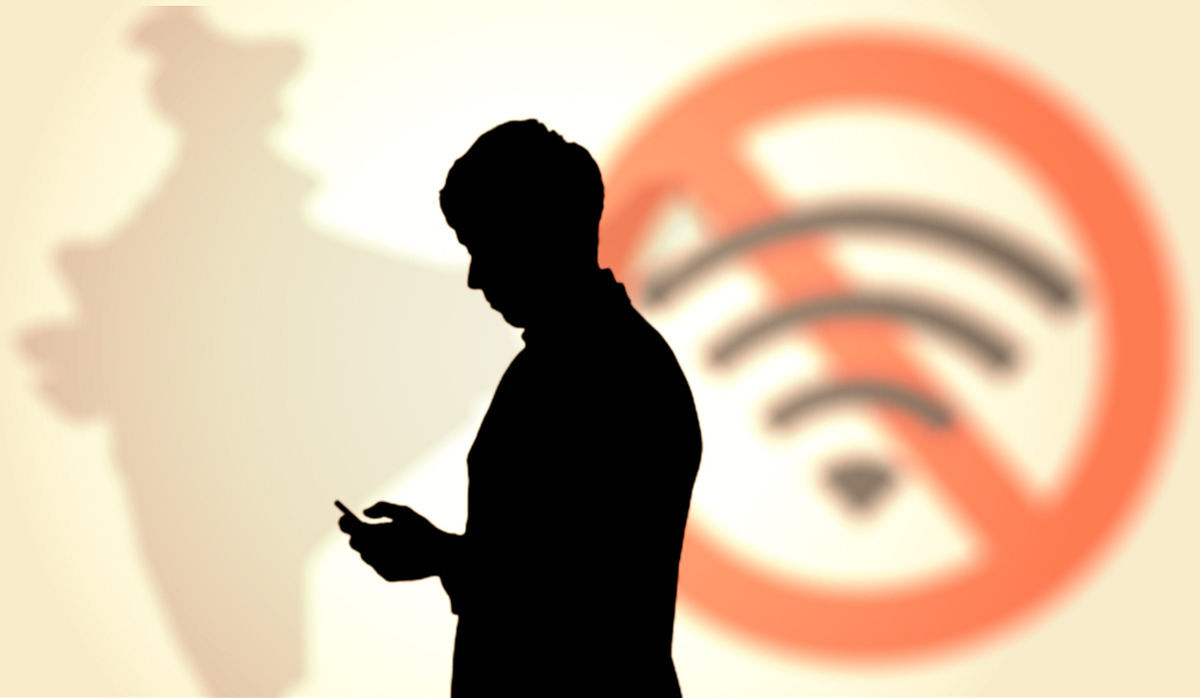Gone offline
India’s retained its dubious distinction of being Internet shutdown capital of the world hurting both citizens’ rights and the country’s economy

I promised myself that 2022 would be a year of movement for me. Travelling, working out, trying out new things — I would thrive on momentum. The first and best decision for me this year was to move cities. I found myself choosing Bangalore, the startup capital of India, as my next destination. And while the limitless optimism of younger years has left me, just being able to get back into a thriving metropolis post-pandemic was exhilarating. Shifting homes, especially intra-city, is a Herculean task! The first thing on my agenda, even before bed and water, was setting up Wi-Fi! While I love the energy of the city with its constant 'go, go, go!' attitude, I decided that home would be outside the maniacal traffic-ridden city limits. Soon I discovered that the boondocks (I mean suburban Bangalore) had a massive power outage. So, the first purchase in the new home was a UPS! I can imagine life without many things but not the internet.
Today, connectivity and our dependence on it is not an exaggeration. Even if we take out the stalking and over-emoting tendencies of social media platforms, the digital era has flourished such that our work and life's daily tasks remain intrinsically woven with those tiny Internet bars on our phone or laptop. Demonetisation forced many to pick up digital tools, the Digital India campaign welcomed many new users of the Internet, while the Covid-19 pandemic opened up the virtual space for thousands more. The world is virtual and to fuel it we need speedy and cheap Internet — both of which India offers. According to reports, India has over 560 million Internet users, second only to the world's most populous country, China. By next year, it's touted that we will cross a whopping 650 million users! With such impressive numbers, I lack the brain-width to comprehend how we have the greatest number of Internet shutdowns in the world.
So, get this — India had over 100 Internet shutdowns in 2021 and with this, we retained the top rank for the fourth year in a row. Between 2019 and 2020, certain areas in India had no digital connectivity for over 13,000 hours! With the political churn and social unrest, the worst hit in India has been Jammu and Kashmir (no surprises there). It's difficult to forget the 7 months days of digital blackout in Jammu and Kashmir between 2019 and 2020. It's unimaginable that 2 out of 3 Internet bans were in J&K.
The latest data compiled by digital rights advocacy group, Access Now, showed that there was a total of 184 Internet shutdowns globally across 34 countries, of which India alone imposed 106 Internet shutdowns. Myanmar (15), Sudan (5), and Iran (5) followed India on this notorious list. Shutting access to the digital world has often been used by Indian authorities as a means to impose law and order; a trend that's being increasingly necessitated in fractured societies. With fake news and proliferation of rumours via messaging platforms liable to instigate communities and communal tensions causing even riots, shutting down communications is the fastest route to ensure 'peace'. In J&K, the authorities have cited Internet shutdowns as a means to reduce terrorist activity; though these claims are yet to be independently corroborated.
In some consolation, there is cognisance of this tarnished reputation (that's best avoided) at the government level. A few months ago, the Parliamentary Standing Committee on Information Technology said in its report, 'Suspension of Telecom and Internet Services and Its Impact' that there needs to be proper defining of the parameters for Internet shutdowns. They also remarked that repeated shutting down of telecom and Internet services impacted the life and liberty of the common man and hurt the Indian economy. Internet shutdowns cause economic loss too. As per a 2016 report by Brookings Institution, India lost almost USD 1 billion due to Internet shutdowns in 2015-'16. Sadly, there is lack of transparency even at the state government level. The Parliamentary Committee noted that only governments of Delhi, Jammu and Kashmir, Bihar, and Kerala had submitted written records of Internet shutdowns.
Frequent shutdowns in select geographies however, also translate into the stamping of democratic rights of citizens, where a shroud of silence is enforced on the people. No news comes in and no news goes out, and no one truly knows what's happening on the ground. Today, we are so deeply dependent on the Internet, that accessibility and being able to communicate can surely be added to our Constitution's Preamble as a guaranteed right. Internet shutdowns impinge on that important right of an Indian citizen. Are our policymakers reading this?
The writer is an author and media entrepreneur. Views expressed are personal



